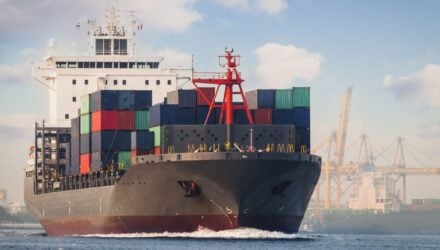Commenting on how the food industry’s troubles are reflecting the fallout from Brexit and how a shortage of vets could reduce trade of animal derived food products, Mark Lynch, Partner at corporate finance house, Oghma Partners, said:
“The food industry’s troubles from the fallout of the Brexit deal could be the most visible signs of the complications caused by leaving the EU’s single market and customs union. While it could be perceived that it will be the consumers of continental Europe that will lose the opportunity to munch into UK product, the most visible signs of the impact are on the, fast emptying, supermarket shelves of Northern Ireland and therefore directly impacting what still are British citizens. The Food industry supplying the likes of Tesco, Sainsbury’s and M&S have been impacted from a, yet to be, fully implemented new trading regime and full rules compliance is required by the end March 2021.
“With Northern Ireland replicating EU rules, the problems supplying this market are the canary in the coal mine for supply challenges into the greater EU single market. The principal problem appears to be around export health certificates that need to be signed by a vet for each batch of product shipped and where the products are derived from animals. In December 2020 the food industry wrote to the UK government warning that a shortage of vets could reduce trade of animal derived food products to the EU by 75% – it seems as if we are seeing the first signs of this problem impacting the supply chain and much closer to home than was thought. For the food industry, the disruption is an unwelcome and unnecessary challenge on top of the problems created by COVID-19. For the chilled chain given its’ short shelf life, no amount of buccaneering optimism will bring markets like Australia or Japan physically closer. Without a work around solution – an acceptance that farming practices in the UK and EU are equivalent and that rules will not diverge with the EU – it seems that some food export markets will be lost forever.”








David Mandel
( Monday, January 18, 2021 - 07:51 )
How did Brexiteers not see this coming? I am Canadian and attended university in 2017/2018. Within a month of being in the UK it was obvious that the UK, itself a union of disparate countries, was too intertwined with the general membership of the EU, most obviously to its benefit. Now, of course, the UK is only Great Britain, and who knows for how long or how the relations may chance.
Many people I spoke to said that they voted FOR Brexit. I was astounded. I asked about fresh lemons or the like and the response I generally got was, “we’ll eat our own”. Be careful what you wish for. But, more seriously, I could not believe that people did not see the benefits of sharing a bigger pie amongst more people. Regional specialities meant that some received unusual – for them – products whist others enjoyed the sale of their items to a wider market.
There was no substantiation of the claims made by the “Leave” side and the “Remain” side was inexplicably silent and ineffective. I expected the the delays by PM May sought and I was astounded when Boris Johnson “got ‘er done”. The only thing is, “Brexit” ISN’T done. Great Britain left NI in Europe, so it is no longer really the UK. How does a country leave one of its jurisdictions in another country (we won’t discuss Gibraltar) and call it “Brexit”. the UK is, quite literally, in the EU.
The “UK” wanted its freedom. It got it. Now it has a choice: Choose to maintain parity with the EU or suffer badly for a long time. And do so without a seat at the table. As many before me have said, it is a spectacular example of self-harm. I guess this is why “Keep Calm and Keep a Stiff Upper Lip” is uniquely British.
Best of luck. But, frankly, this is why I didn’t return to school this year. Who needs to live in a powder keg and pressure cooker.